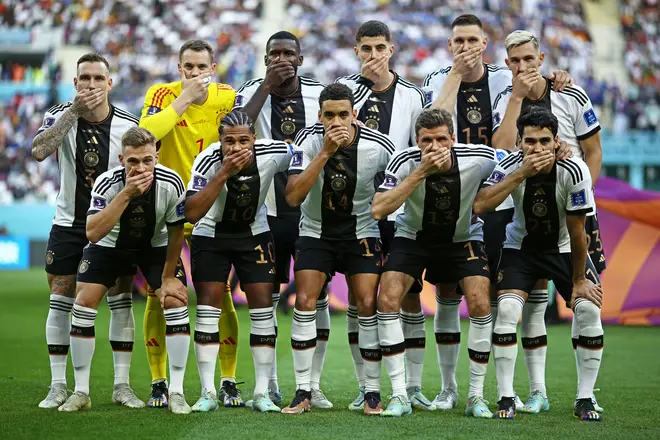
Clive Bull 1am - 4am
23 November 2022, 15:02 | Updated: 23 November 2022, 15:42

Germany’s World Cup side have sent a defiant message with a team photo covering their mouths indicating they’ve been silenced by Fifa - as the row over OneLove armbands at the World Cup escalates.
The Germany team were one of seven nations planning to wear the OneLove armbands in Qatar - a message of support and unity for the LGBTQ+ community.
England, Wales, Belgium, Holland, Switzerland and Denmark were all supposed to wear the armbands too, but were banned by Fifa, who threatened yellow cards for teams who wore them, as well as other ‘sanctions.’
After the protest, the German Football Association (DFB) released a statement supporting the team, saying: “To ban the armband is like banning our right to speak.”
But Germany's Interior Minister Nancy Fraser wore the banned armband instead. She disguised it underneath a pink blazer, which she took off as the game began.

FIFA president Gianni Infantino was in the stands to watch the German side’s protest.
The DFB said on Twitter: “We wanted to use our captain's armband to take a stand for values that we hold in the Germany national team: diversity and mutual respect.
“Together with other nations, we wanted our voice to be heard.”
“[The gesture] wasn't about making a political statement – human rights are non-negotiable. That should be taken for granted, but it still isn't the case. That's why this message is so important to us. Denying us the armband is the same as denying us a voice. We stand by our position.”
England, Wales, Belgium, the Netherlands, Switzerland, Germany and Denmark all said they had been put under pressure by FIFA, and abandoned plans to wear the symbol in the conservative Muslim country, where homosexuality is illegal.